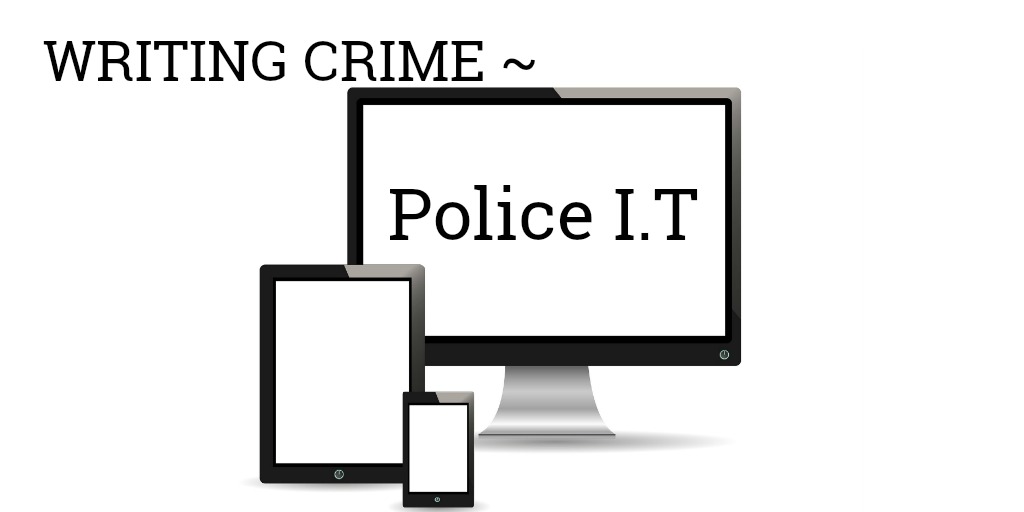
I put a request out on Twitter for people to suggest topics for this series and one of the first responses was from K A Whitfield asking about police I.T, for example, who examines CCTV.
This topic isn’t set in stone because it will vary from police force to police force. Each force will have their I.T and their departments set up how they feel best works for them, but I can give you an overview of how it might be. How it could realistically work, based on my own knowledge.
CCTV
CCTV is under the control of local councils and can be accessed by police if needed for evidence. See this page by Derby council, where they state they keep the footage for 28 days before destroying it if it hasn’t been requested for evidence. You can find your own council page on their CCTV practices by doing a web search for them.
Police can also search the area of a crime scene for business or personal CCTV cameras which may have captured evidence of the offence and seize these.
So, what happens when all the CCTV has been collected?
Someone within the enquiry team will be allocated as the CCTV viewer and they will be responsible for viewing, sometimes, hundreds of hours of footage. It is a long and arduous job, but it has to be done. They’ll sit at a monitor and view it all. Day in and day out.
Computers
Computers that need examining will be examined by a dedicated department who are specially trained in the forensic examination of computers. I sometimes read books where the officer just turns on the computer, desktop or laptop, and has a nosey around. This is a huge no-no. It has to be forensically examined or you can be at risk of the defence alleging you have contaminated the evidence should this case go to trial. In the department I worked on I was trained to forensically examine computers, and could do this without sending them to the department that would normally do this. But, this is unusual. It was because a lot of our work was computer based. You wouldn’t normally find this situation. And certain hardware needs to be available to do it.
Mobile telephones
Again, these would go to a department that forensically examines them. Sometimes the department can be the same one as the above, or they can be separate. When seizing a mobile phone, turn it off and take the battery out if possible.
Reports
Police officers write all their own reports. A lot of time is spent at a desk typing away at a computer. The police is a bureaucracy-heavy machine. Witness statements can either be written by hand or can be typed up on the computer. The rest of the paperwork is completed on the computer where all files are stored.
I.T
The general I.T of the police is kept up-to-date by an I.T department.
Please feel free to suggest any topics you want to be covered in this series. I’m happy to look at them.
 Rebecca Bradley is a retired UK police detective with over 15 years UK policing experience. Seven of those years were in uniform and the rest in a specialist investigative department where She handled multiple, serious and complex investigations. She is now a crime writer and offers a police procedural fact-checking service, available to all crime writers setting their work in England or Wales.
Rebecca Bradley is a retired UK police detective with over 15 years UK policing experience. Seven of those years were in uniform and the rest in a specialist investigative department where She handled multiple, serious and complex investigations. She is now a crime writer and offers a police procedural fact-checking service, available to all crime writers setting their work in England or Wales.
Please see THIS POST for further details.
She writes the DI Hannah Robbins series.
 When catching a killer isn’t enough…
When catching a killer isn’t enough…
The naked, battered body of an unidentified teenager is found dumped in an alleyway and post-mortem finds evidence of a harrowing series of events.
Another teenage death with the same MO pushes DI Hannah Robbins and her team in the Nottingham City division Major Crimes Unit, to their limits, and across county borders. In a race against the clock, they attempt to unpick a thick web of lies and deceit to uncover the truth behind the deaths.
But it doesn’t stop there.
Just how far are the team willing to push themselves to save the next girl?



You’d really have to know what to look for watching all of that video.
Yes, it really is a tedious job. You have to be focused.
As always, Rebecca, this is fascinating. I’ve read more than one novel where the police needed access to a computer, and I’ve always suspected that looking through a computer would require special preparation and skills. As you say, too, if the police are going to use a computer or its files as evidence, it would be critical to keep it ‘clean,’ So I can see how examining one would have to be a careful process.
Yes, it drives me insane when they just open the laptop and have a nosey through it!